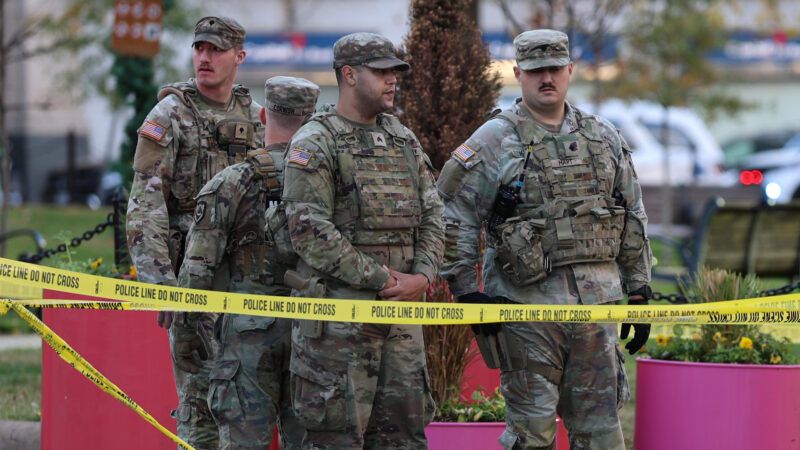2 National Guardsmen Shot in D.C., Suspect in Custody
President Trump has already announced plans to deploy 500 more troops to the nation's capital.

Two members of the National Guard were shot on Wednesday afternoon in Washington, D.C.—just two blocks from the White House—while on deployment. News reports have described their status as critical. A suspect was also transported to a hospital and is in custody, according to reports.
The guardsmen are from West Virginia. That state's governor, Patrick Morrisey (R), initially wrote on X that both had died, but walked back his statement amidst "conflicting reports." His initial, possibly erroneous claim should serve as a powerful reminder that it is always best to hold off and wait for more information, so as not to communicate false gossip to the public and start rumors. Very soon, we will know the conditions of the victims, who they are, and the name of the suspect; we will also be able to form better theories about the suspect's potential motivations. In the coming days, law enforcement will likely be able to provide concrete details that establish definitive motivations. Spouting off on social media or spreading rumors as fact at this early juncture is at best unhelpful.
This is clearly going to be a very political subject, since the National Guard is in Washington, D.C., as a result of President Donald Trump's decision to federalize the city's crime response. Some left-leaning pundits are already treating this attack as evidence that the National Guard presence has not worked to deter crime and instead has inflamed tensions. Some right-leaning pundits have heavily suggested that the Democrats' criticism of federal troops has inspired such violence. Trump himself is wasting no time, and has already announced plans to send 500 additional troops to Washington, D.C.
How to make the nation's capital a safer city, and what role federal resources could play in that effort, is a complicated subject that deserves nuanced debate and discussion, not scorching hot takes. Knee-jerk policymaking that occurs in the immediate aftermath of a tragedy is seldom well-considered. It would benefit the national discourse greatly if everyone could offer their prayers and well-wishes, but otherwise hold off for the time being.
